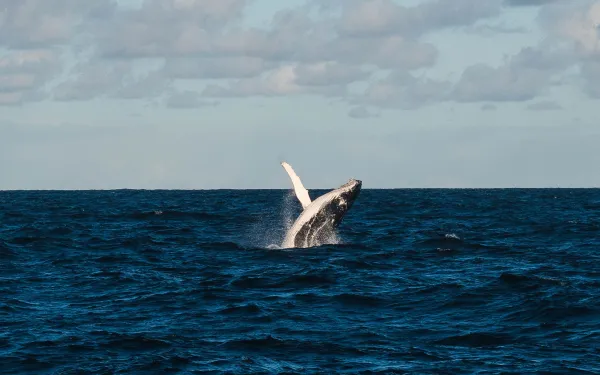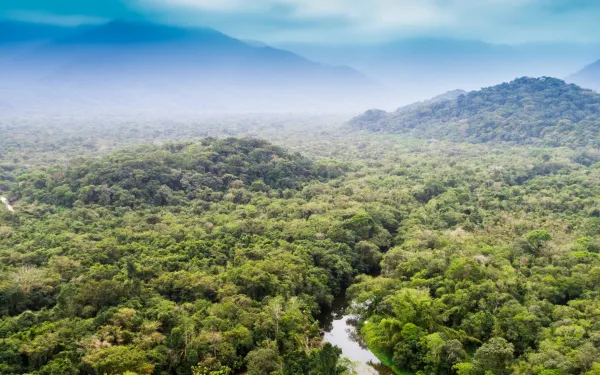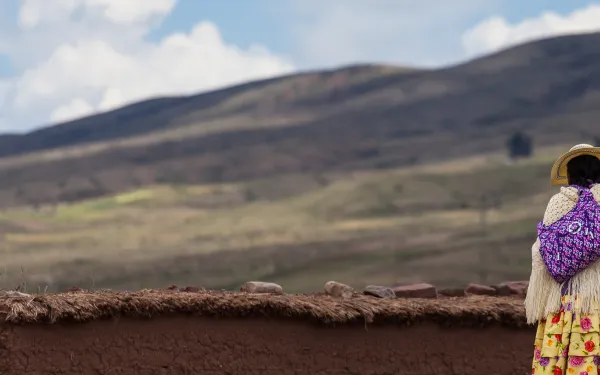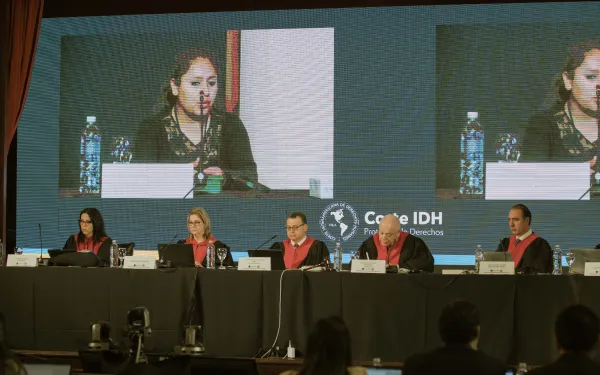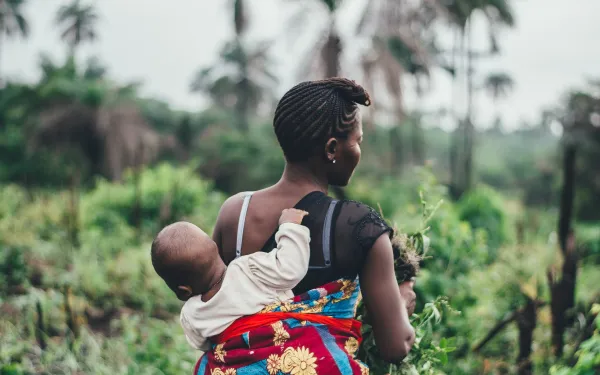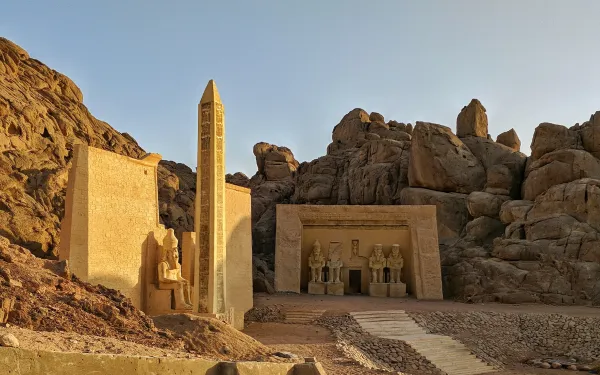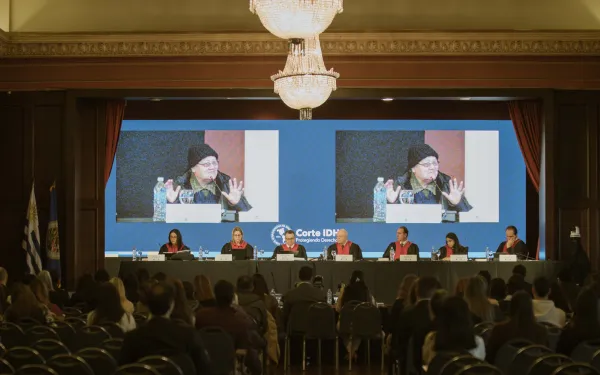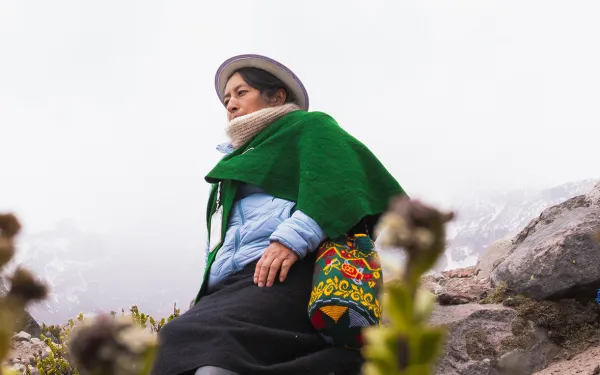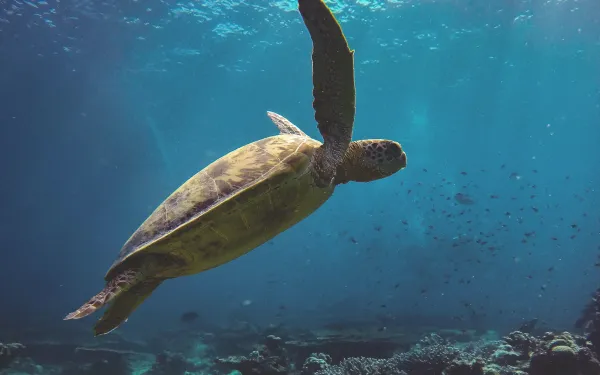
Agreement reached to advance High Seas Treaty
New Treaty agreed to protect half the planet but formal adoption still required. Late this evening governments meeting at the United Nations in New York reached agreement on key substantive issues for a new treaty to protect high seas marine life. To ensure this hard won progress is not lost, The High Seas Alliance is calling for the UN to conclude the formalities of adoption as soon as possible in the final resumed session. "Following a two week long rollercoaster ride of negotiations and super-hero efforts in the last 48 hours, governments reached agreement on key issues that will advance protection and better management of marine biodiversity in the high seas," said Rebecca Hubbard, Director of the High Seas Alliance. The high seas, the area of ocean that lies beyond countries’ national waters, is the largest habitat on Earth and home to millions of species. With currently just over 1% of the high seas protected, the new treaty will provide a pathway to establish marine protected areas in these waters. It is also a key tool to help deliver the recently agreed Kunming-Montreal target of at least 30% protection of the world’s ocean by 2030 that was just agreed in December- the minimum level of protection scientists warn is necessary to ensure a healthy ocean. But time is of the essence. The new Treaty will bring ocean governance into the 21st century, including establishing modern requirements to assess and manage planned human activities that would affect marine life in the high seas as well as ensuring greater transparency. This will greatly strengthen the effective area-based management of fishing, shipping and other activities that have contributed to the overall decline in ocean health. The issue of sufficient financing to fund the implementation of the treaty, as well as equity issues surrounding the sharing of benefits from marine genetic resources was one of the key sticking points between North and South throughout the meeting. However, right up to the final hours of the meeting, governments were able to land an agreement that provided for equitable sharing of these benefits from the deep sea and high seas. "It’s been a very long journey to get to a treaty. We will be looking to the 52 states that make up the High Ambition Coalition to lead the charge to adopt, ratify and identify important high seas areas to protect," said Hubbard. High Seas Alliance Member Quotes Gladys Martínez de Lemos, Executive Director, Interamerican Association for Environmental Defense (AIDA): "Governments have taken an important step that strengthens the legal protection of two-thirds of the ocean and with it marine biodiversity, the livelihoods of coastal communities and global food sovereignty. The agreement sets out a path for establishing areas of high and full protection on the High Seas, as well as for the environmental assessment of projects and activities that may harm this vast area." Laura Meller, oceans campaigner, Greenpeace Nordic: "This is a historic day for conservation and a sign that in a divided world, protecting nature and people can triumph over geopolitics. We praise countries for seeking compromises, putting aside differences and delivering a treaty that will let us protect the oceans, build our resilience to climate change and safeguard the lives and livelihoods of billions of people. We can now finally move from talk to real change at sea. Countries must formally adopt the treaty and ratify it as quickly as possible to bring it into force, and then deliver the fully protected ocean sanctuaries our planet needs. The clock is still ticking to deliver 30x30. We have half a decade left, and we can’t be complacent." Matthew Collis, Deputy Vice President for Policy, IFAW: "The agreement of a new Treaty to conserve the high seas is a wonderful way to celebrate World Wildlife Day for ocean animals and their high seas homes. IFAW congratulates governments on this significant step, which charts a course to protect 30% of the ocean by 2030. To achieve 30x30, governments must now adopt, ratify and implement the new Treaty without delay." Minna Epps, Director of Global Marine and Polar Programme, IUCN: "The High Seas Treaty opens the path for humankind to finally provide protection to marine life across our one ocean. Its adoption closes essential gaps in international law and offers a framework for governments to work together to protect global ocean heath, climate resilience, and the socioeconomic wellbeing and food security of billions of people." Lance Morgan, President, Marine Conservation Institute: "Coming on the heels of the Global Biodiversity Framework, this historic agreement is a huge step towards ensuring marine protected areas in the High Seas and reaching 30x30." Lisa Speer, Director of the International Ocean program, Natural Resources Defense Council (NRDC): "This text provides the basis for protecting key biodiversity hotspots in the high seas. We now have a pathway to achieve the goal of meaningfully protecting at least 30% of the ocean by 2030, a goal that scientists tell us is crucial to maintaining ocean health in the face of ocean warming, acidification and other impacts of climate change. Now let’s get started." Fabienne McLellan, Managing Director, OceanCare: "This Treaty will be the game-changer the ocean urgently needs. We particularly welcome the conservation focused elements, such as environmental impact assessments. EIAs are one of the most effective and important mechanisms to prevent, mitigate and manage harmful activities in cases where there is severe harm to marine life through, for instance, underwater noise pollution. While we advocated for more ambition in the EIA provisions, these requirements will nevertheless strengthen ocean conservation." Susanna Fuller, VP Conservation and Projects, Oceans North: "Following the Kunming Montreal Agreement, which sets out a global path for biodiversity protection, this treaty will bring a similar ambition to the high seas. Because Canada’s waters are bounded by three international ocean basins, it has an outsized role in ensuring that the treaty is fully implemented, once formally adopted." Liz Karan, Director of Ocean Governance project, Pew: "The effective implementation of this landmark treaty is the only pathway to safeguard high seas biodiversity for generations to come and provides a pathway for nations to fulfill the 30 by 30 target. Governments and civil society must now ensure that the agreement is adopted and rapidly enters into force." Christopher Chin, Executive Director, The Center for Oceanic Awareness, Research, and Education (COARE): "With this finalized text, the world is now one great step closer to embracing the importance of the High Seas, and to achieving the 30x30 objectives. Once adopted, however, member States must still ratify the treaty, and we call upon them to do so swiftly." Andrew Deutz, Director of Global Policy, Institutions & Conservation Finance, The Nature Conservancy: "While the treaty leaves room for improvement, we should nevertheless celebrate the fact that –after more than a decade of discussions and three concerted attempts to wrestle it across the line – we finally have a global framework in place for the conservation and sustainable use of biodiversity for almost half of our planet’s surface. Whether this has arrived in time to slow the accelerating ecological crisis happening in our ocean will depend on how quickly countries can ratify the treaty at national level and start mainstreaming ambitions like 30x30 into both their own decision-making, and that of the global bodies which manage human activity on the high seas. If they can do so swiftly, putting people and planet above politics, we may yet have a chance to move beyond the damaging status quo and into a new era of nature-positive stewardship for this most critical of ecosystems." Farah Obaidullah, Ocean Advocate and Founder, Women4Oceans: "This is an historic moment for humanity and for the protection of all living beings in our global ocean. A rare and welcome moment of hope for all of us rightfully concerned with the state of the world. Almost half our planet will now have a chance of some sort of protection from the ever-increasing onslaughts to the ocean. This treaty comes not a moment too soon. With the climate and global wildlife crises worsening and a reckless new industry of deep-sea mining on the horizon, we cannot afford any delays in putting this treaty into force." Press contacts: Patricia Roy (EU), +34 696 905 907 Michael Crocker (US), +1 (207) 522-1366 Mirella von Lindenfels, + 44 7717 844 352 Julio Whalen-Valeriano (UN), +1 (850) 292-4689
Read more
